
CONTENTS:
Message from the CMS PhD Coordinator, Kara Gaston
News & Stories:
The Transmission and Reception of Poetry with Cillian O'Hogan, Matthew Reid, and Claire Davis
Discovering La Sfera with Laura Ingallinella
Faculty Spotlight: Renée Trilling / Angus Cameron Professorship in Old English with Toni Healey
In Memoriam: Natalie Zemon Davis by Suzanne Conklin Akbari
Lectures & Conferences: CMS Convivium, Other Events
Photos: Past Convivia, CMS Open House, Otia, 9th Cologne-Toronto Colloquium
Acclamations: Faculty News, Student News, Alumni News, Staff News
Message from the CMS PhD Coordinator
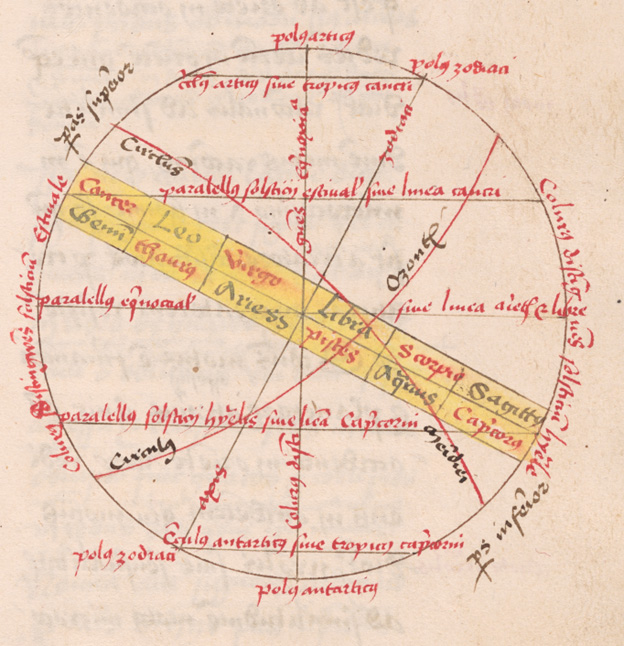
Medieval astronomy invites us to think about the winter solstice in terms of distance and absence. Sacrobosco’s De Sphera mundi explains, “the sun . . . when in the first point of Capricorn or winter solstice, as it is carried by the firmament, describes another circle. This is the final circle described by the sun in the direction of the Antarctic pole, wherefore it is called the ‘circle of the winter solstice’ or the ‘winter tropic,’ because then the sun turns toward us.” As it approaches the winter solstice, the sun’s motion may be imagined as a series of spirals. Each day it circles the earth but returns to a point slightly south of where it began. Finally, it reaches the head of Capricorn, its southernmost position. At this latitude, its rotation around the earth describes the Tropic of Capricorn (the second lowest of the horizontal lines in the diagram below). The sun then finally turns and begins to spiral back toward observers in the northern hemisphere. Or as Chaucer puts it in his Treatise on the Astrolabe, “thanne bygynnyth the sonne to come agayn to vs-ward.”
Chaucer and Sacrobosco both write from perspectives fixed in the Northern Hemisphere. In contrast, I hope that the holiday break has allowed many of you a shift in perspective: an opportunity for rest and relaxation, travel, or a chance to focus upon projects free from the day-to-day concerns of the semester. I have enjoyed long walks each morning, often through a large blueberry barren. In the open space, it is possible to observe how the winter sun rolls along the southern horizon and to envision it beginning to rise higher in the sky each day. Although this different perspective has been welcome, I look forward to returning “vs-ward” to CMS and to the activity that lies ahead in the new semester.
Just some of the exciting work currently happening at CMS is described in our News and Stories section. Cillian O’Hogan is leading a SSHRC-funded research project on The Transmission and Reception of Prudentius in the Middle Ages and Laura Ingallinella’s team is working on the NEH-funded La Sfera Project. We will be welcoming Renée Trilling as Angus Cameron Professor in Old English. Under Lectures & Conferences, you may find the schedule for this semester’s Convivium, which will include presentations by CMS PhD candidates, postdoctoral fellows, faculty, and alumni. The semester will also bring the Etienne Gilson lecture and Medieval Women Workshop IV at PIMS, the Toronto Workshop in Ancient Philosophy, and the Old English Colloquium. Along with these activities, I look forward to returning to work with the Executive+ team and to conversations with students. I hope to see many of you in the new year!
News & Stories
The Transmission and Reception of Poetry
CMS Professor Cillian O’Hogan has recently launched The Transmission and Reception of Prudentius in the Latin Middle Ages, a project intended to provide a comprehensive examination of Christian Latin poet Prudentius and his influence on the poetry of the Middle Ages. Supported by a 5-year SSHRC Insight Grant, Professor O’Hogan, along with CMS PhD Students Claire Davis and Matthew Reid, will study surviving manuscripts to determine the scope of Prudentius’ anthology, tracing his poetry’s reach across the 5th-12th centuries.
What can you tell us about your project’s aim and evolution?
The project grew out of a seminar I taught in my first semester at CMS on Prudentius in the Middle Ages. Along with a really brilliant group of students, I explored a range of texts written between the 7th and 12th centuries that were heavily influenced by Prudentius’ poetry, and it became clear that there was much work to be done on Prudentius’ reception by later medieval authors.
While Prudentius’ influence has long been acknowledged by medievalists, it has never been systemically studied. This project will demonstrate that in content, form, and structure, Prudentius’ poetry underpins the literary output of the Latin Middle Ages.
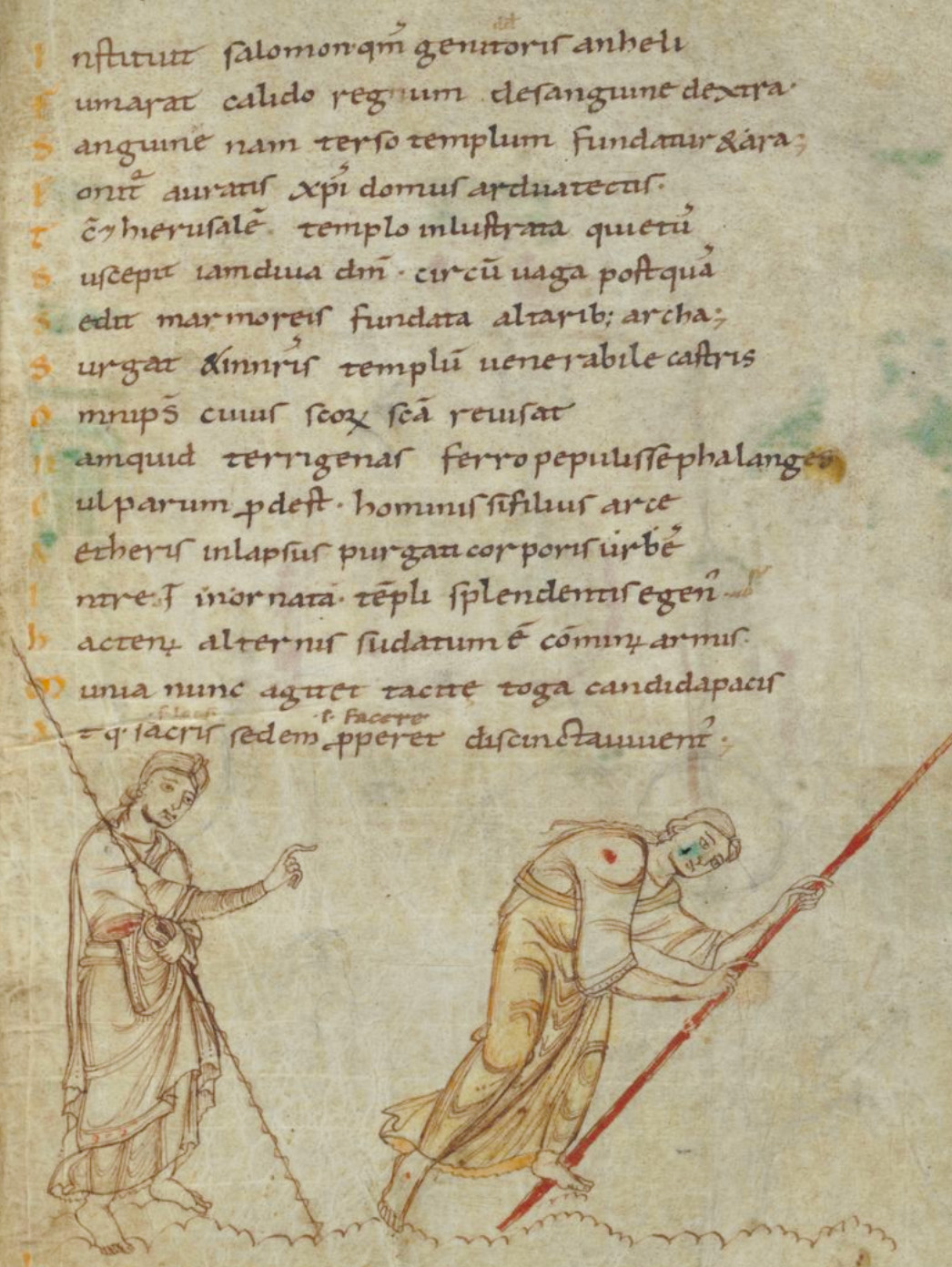
Why is it important to show the influence that the late antique had on the middle ages?
One of the reasons I wanted to pursue this project was because although there’s been a great deal of scholarship on the influence of classical poets, like Virgil and Ovid, on the literature of the Middle Ages, there has been much less research done on the reception of the late antique poets. However, Prudentius was just as central to the school curriculum in the Middle Ages as his more well-known classical counterparts, and I hope to show his influence was just as profound.
This project fits into a long CMS tradition of work on how earlier Latin poetry was read and imitated in the Middle Ages: Gernot Wieland (PhD 1976) and Peter Buchanan (PhD 2013) have both written about Prudentius in early medieval England, while Marjorie Curry Woods (PhD 1977) and Justin Haynes (PhD 2014) have written important books on Virgil in the Middle Ages. More recently, Colleen Butler (PhD 2016) and Emily Blakelock (PhD 2017) have shown how important the medieval classroom was for shaping Latin literary production. The last three of those were supervised at CMS by David Townsend (PhD 1985), whose work on medieval Latinities sets the standard for anyone who wants to think seriously about the literary culture of the Latin Middle Ages. I also am very fortunate to be able to consult many other very learned colleagues both at CMS and at PIMS about all sorts of related topics, and I hope that they will find something of interest in the resulting publications.
Good timing meant that I have already presented the first fruits of the project at a conference in Besançon on the Prudentius and his contemporary Paulinus of Nola, where CMS faculty and alumni made up the entirety of the North American contingent. In addition to myself, there were presentations by Greti Dinkova-Bruun (PhD 1999) and Daniel Nodes (PhD 1981)!
How has the SSHRC grant allowed for further exploration with CMS students?
The SSHRC Insight Grant provides funding for research, a postdoctoral fellow position, and travel to major European libraries, but above all for two graduate research assistants to help with philological and codicological research.
The student RAs involved in this project will be able to experience the generation and development of a large-scale research project from its very early stages. I’m involving them with every aspect, including primary manuscript research and database mining, through to workshopping ideas about papers and publications. They will also experience presenting at conferences, and I am hopeful about the possibility of some co-authored publications. One of the delights of manuscript research is serendipitous discoveries – you never quite know what’s going to catch your eye when you open a manuscript (even a very well-known one!) for the first time, and I’m hopeful that all members of the team will find new paths for research exploration along the way.
It’s such a joy to work with CMS students precisely because of the diversity of experience and viewpoints they have. My own training was in Classics, and that means I approach Latin literature in a very particular way. What I value about working with Claire and Matthew is partly their greater knowledge of fields about which I know quite a bit less (early medieval vernacular literature in particular), but more importantly, their own disciplinary training and their ability (and willingness!) to identify potential shortcomings and limitations in the way I’m approaching the work.
CMS PhD Students Claire Davis and Matthew Reid discuss the importance of learning by researching, and how collaborative explorations contribute to their own studies at the Centre.
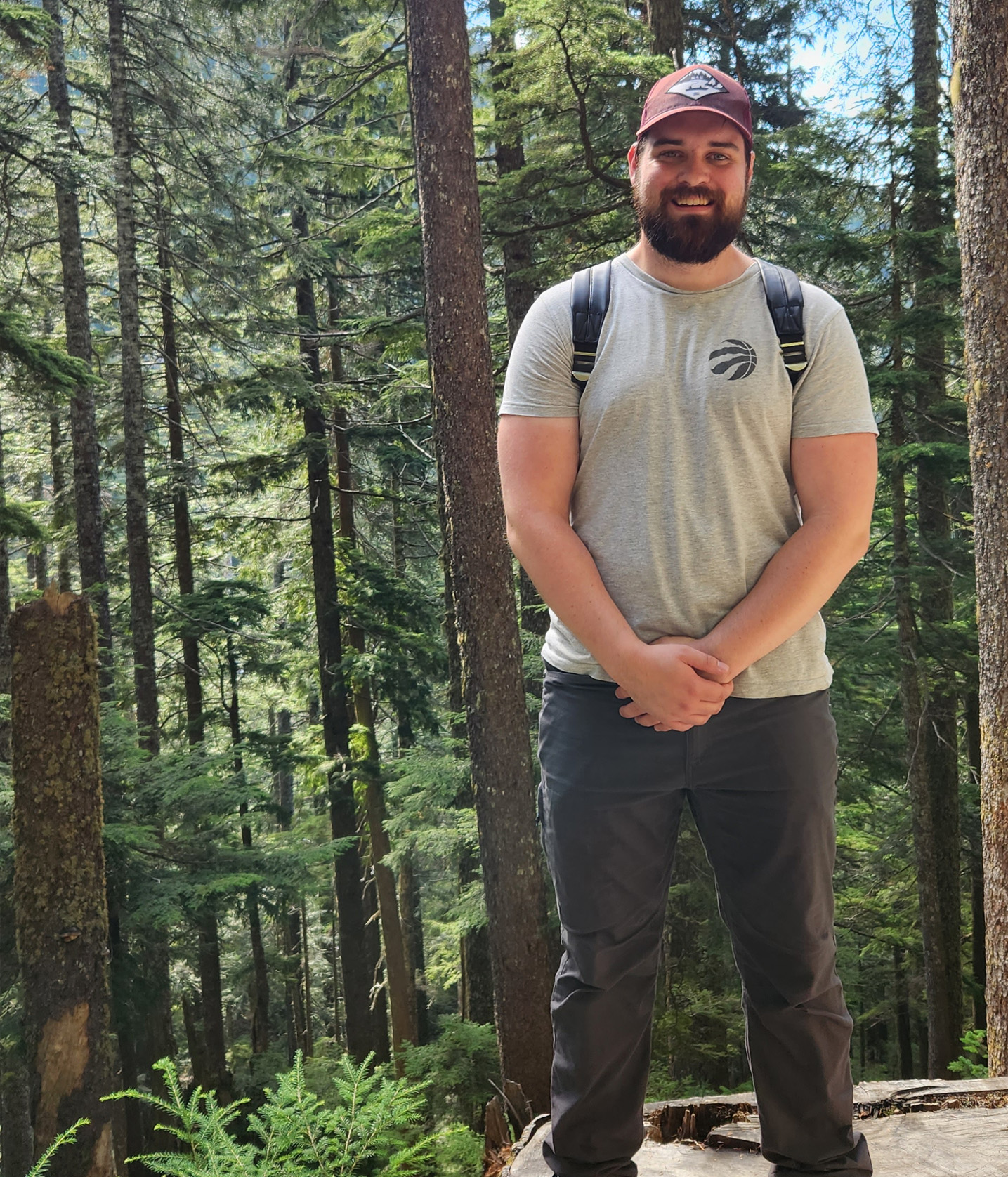
Matthew, why is the topic of this project important to you?
Prudentius’ influence on the Latin poetry of the Middle Ages cannot be understated. His use of various meters, genres, and narrative topics all contributed greatly to the evolving landscape of medieval Latin poetry. As a school author, his poetry would constitute a major portion of grammatical education for students throughout the medieval millennium. However, the need to make explicit how Prudentius’ influence materialized in the Middle Ages still remains.
The importance of this project lies in its goal to fill in this gap in the scholarship of late antique reception. The Latin poetry, grammar, and religious writing of late antiquity became major sources for knowledge in the Middle Ages. One would be hard-pressed to find a major Latin poet who does not dip into the well of late antique literature. The need to make explicit just who did so with Prudentius and how they did so constitutes one major portion of this project.
How will your previous studies dictate and relate to your role in the project?
I will assist in identifying Prudentius’ medieval imitators through verbal and metrical parallels. Additionally, I will assist in compiling annotated bibliographies of scholarly literature written about these authors.
My previous studies of late antique Latin (and to a lesser extent Greek) poetry as well as early medieval education practices, I hope, will be a positive contribution to the project. I expect to gain a broader understanding of Prudentius’ influence on medieval verse composition beyond the temporal and geographical constraints of my own research on pre-Conquest Britain. The potential to learn more about the literary activities of major figures outside the insular milieu to which I am most accustomed makes working on this project an invaluable experience.
Students stand to gain much in terms of learning about new resources and methods of analysis through working with faculty on their research projects. One of the greatest benefits of being able to work on a project like this is being able to share the enjoyable experience with those who are involved in reading delightful Latin verse and learning more about how Prudentius contributed to its composition over the centuries.
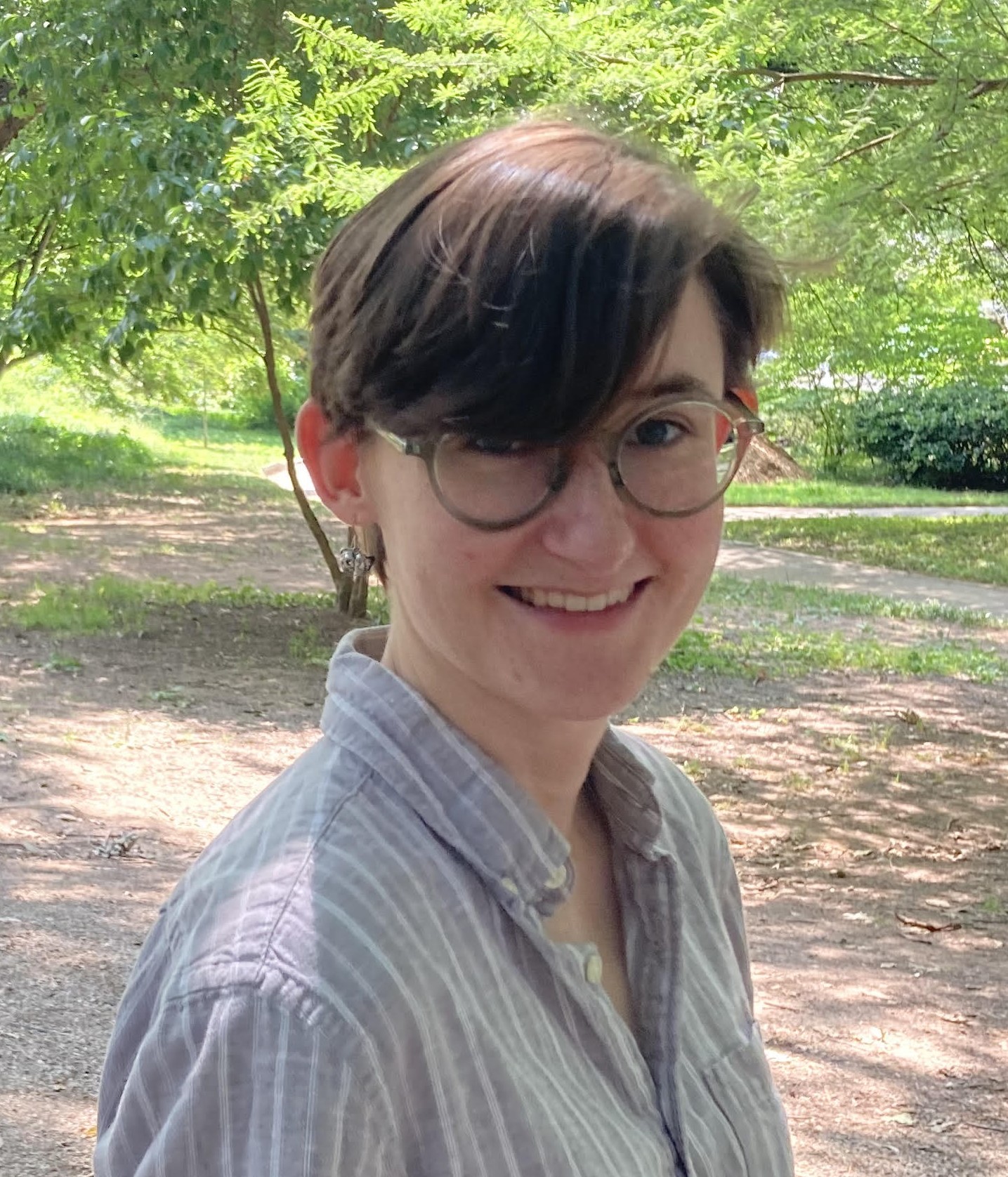
Claire, what is your involvement in the project, and how does it relate to your previous studies?
My role in the project is as a book historian. Much of my work falls in the realm of codicology, as I am tracing the transmission of Prudentius and Prudentius-inspired poems through extant manuscripts. This project is an exciting opportunity to put my training from the Book History and Print Culture program into practice. Having learned the basics of book history from the Head of Rare Books and Special Collections at Fisher Library, David Fernandez, and the particulars of medieval codicology from auditing Professor Cillian O’Hogan’s course, getting the chance to cross-reference a variety of different texts across medieval Europe is a wonderful progression in my training.
This project is invaluable to me for that reason; without a faculty research project that specifically called for a graduate research assistant who specialized in book history practices, I would not have had the chance to practise this work before I graduated with a PhD. As you might imagine, hands-on work is very different from theoretical training, and while I have had semesters of experience handling books at Fisher, my projects were always limited to what I could accomplish in a single semester, which usually resulted in a detailed examination of one particular codex. Organizing and ultimately comparing many different codices, while at times daunting, is an excellent and exciting experience in the current field.
What can you tell us about your current research in relation to the project?
I am studying Old English poetics through a framework that views weaving practices as metaphor for composition and a narrative genre of its own, and while these particular research interests may not explicitly align with the project, they do inform my overall approach to the role. Since my undergraduate career, I have been interested in the ways that textual traditions are received and adapted over time by a variety of audiences and cultures. There is no truly ‘original’ piece of literature in the ways that modern copyright laws enforce; instead, I see literary studies as exploring a wider web of reception and adaptation. Medieval literary studies, especially at an interdisciplinary place like CMS, only compounds this web of influence, as the distinctions between fields such as history, poetics, astronomy, and chemistry are not yet distinct from each other or literature. Prudentius, as a widespread late antique poet, is the perfect model for demonstrating the fluidity between traditional literary periods. I hope through this project to not only refine my technical skills as a book historian but to also refine my methodology in my own work, grounded in the material world as well as in the literary one.
Discovering La Sfera
Along with her team, Professor Laura Ingallinella (Italian Studies/ Victoria College /cross-appointed at CMS) was awarded an NEH grant to facilitate the La Sfera Project, a collaborative initiative that explores Gregorio Dati’s 15th-century poem, La Sfera or The Globe. Just as Dati’s work was designed to introduce the next generation of Florentine merchants to the cosmos, the natural world, and Mediterranean geography, the La Sfera Project aims to challenge modern misconceptions of premodern Europeans with their own open-access multimedia edition.
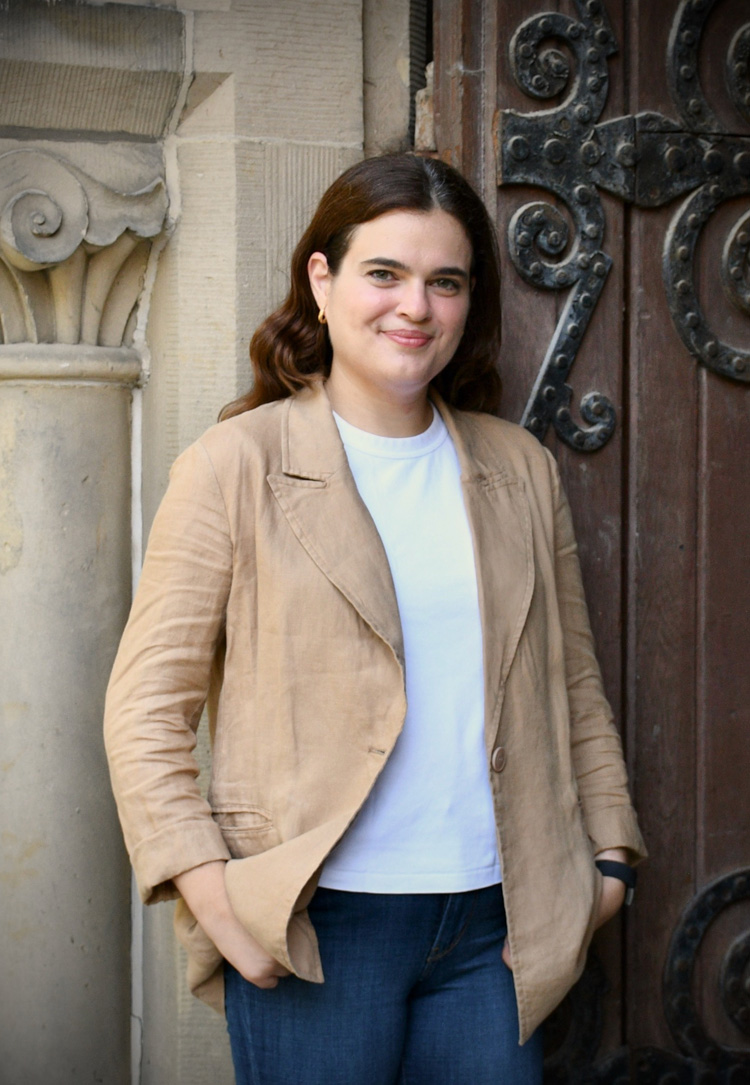
Why is La Sfera significant and important to share so widely?
Working on Goro Dati’s La Sfera feels like bringing a forgotten world of manuscripts and readers into light. While the poem was a bestseller in premodern Italy (with more than a hundred and fifty extant manuscripts, more than Boccaccio’s Decameron), premodernists have somewhat relegated this poem to the margins. For centuries, the poem’s authorship was not even attributed to Goro but to his brother, Leonardo. As a member of the Dominican order with a humanist education, Leonardo possessed more of an intellectual pedigree than his “lowbrow” brother. Following this reading of premodern cultural production, Goro may have been a successful silk merchant, politician, and historian, but never a poet. Instead, our project is recovering Goro’s contribution within the broader context of early 15th-century Florence. La Sfera is a compelling blend of cosmology, science, and geography in poetic form, and studying this poem is crucial for appreciating the intellectual vibrancy of premodern Italy. As a premodernist working at the crossroads between texts, identities, and communities, this is something crucial that this poem can bring to the field.
What is your role in the project, and how does it continue to evolve?
My primary task as the co-director of the La Sfera Project is to study the relationship between the manuscripts that preserve Goro’s poem. My team includes two graduate students from the Italian Studies department, Olivia Cox and Rumi Handen, and I hope to welcome CMS students next year. We are unravelling the poem’s transmission among readers, scribes, and workshops where the poem was copied. This is crucial for understanding how La Sfera was interpreted and valued over time. The goals of the project as a whole move in a similar direction. These manuscripts were richly illustrated, and the section on Mediterranean geography often features detailed maps with ever-changing locations and place names. Combining textual, codicological, and geospatial approaches is crucial for a poem like La Sfera, where knowledge is recorded in many ways.
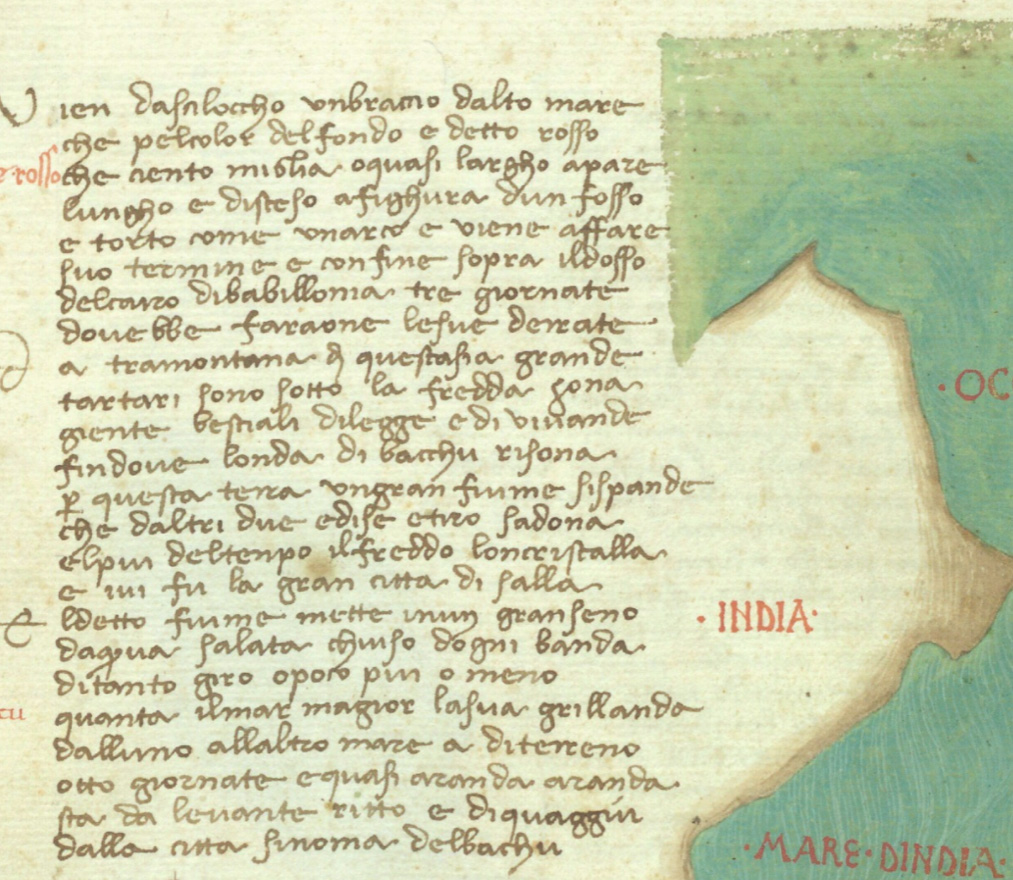
The La Sfera Project is collaborative and involves several scholars; why is that important?
Our project is a testament to the multidimensional approach required to appreciate the complexities of premodern culture. Our team features literary historians like myself, but also those trained in geospatial analysis and digital humanities (fellow co-PIs Carrie Beneš, Amanda Madden, and Laura Morreale), along with a broader community that has brought this poem to life through paleography, manuscript studies, history of science, and beyond. This collaborative spirit has been part of the La Sfera Project from its inception.
During the first pandemic lockdown, Laura Morreale brought together a virtual community comprising over fifty scholars from all over the world to transcribe manuscripts preserving Goro’s poem. These online transcribe-a-thons, called the “La Sfera Challenge,” allowed us to see this poem’s potential. A community formed through shared enthusiasm, and we began to ask each other questions that could not have been answered as individual researchers. And so, we decided to explore La Sfera collaboratively, not just as a text, but as a cultural artifact embedded within a complex context, and to create this digital project.
What do you hope to ultimately contribute to the scholarly community with this project?
La Sfera is a testament to premodern Italy’s interconnectedness with the Mediterranean and the Black Sea, only a few decades before Europeans began exploring other maritime routes. This poem, rich in cosmological and geographical information, reflects the cosmopolitan nature of 15th-century Italy, where knowledge of the natural world and geography was intricately linked with commercial and cultural interactions. The poem weaves together the scientific, the geographical, and the theological, and it illustrates how premodern worldviews were as much about geographical explorations as it was about understanding one’s place in the cosmos and within the Christian framework. La Sfera strikingly combines a vivid portrayal of the era’s trade routes and ports, while simultaneously embedding these geographical insights within broader religious and cultural readings of the world.
Learn more at sites.google.com/ncf.edu/sfera-project.
National Endowment for the Humanities Grants promote excellence in the humanities by funding top-rated proposals.
Faculty Spotlight
CMS is proud to welcome Renée Trilling as Professor of Old English Language and Literature, and the new Angus Cameron Professor in Old English. Professor Trilling tells us about her journey to CMS, and what she’s looking forward to during her first year.
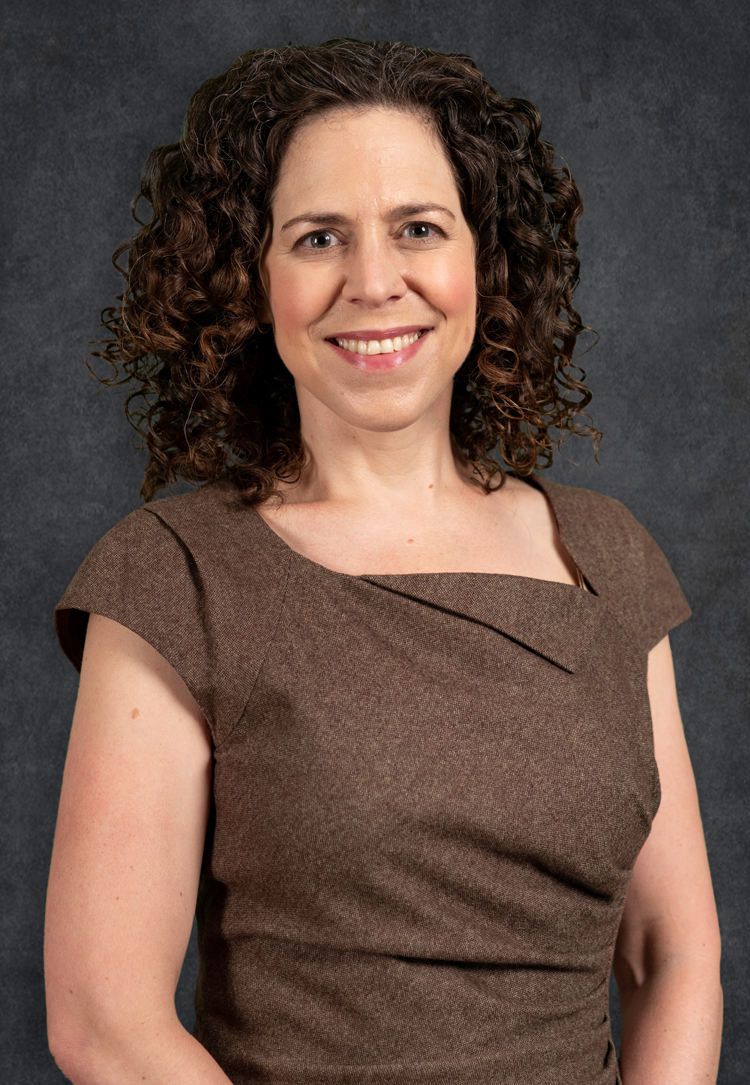
What drew you to study Old and Middle English literature, and how has this interest continued to flourish and shape your research?
When I was twelve, an aunt gave me a copy of Geoffrey Ashe’s The Discovery of King Arthur. Rather than trying to identify a “real” Arthur, Ashe explores history, literature, philology, archaeology, art, and folklore to understand the world that gave rise to the legend. Ever since, I have been fascinated by the relationships between historical contexts and their cultural productions, and the tools we can use to unpack them. My early work focused on the relationship between poetic form and historical consciousness in early English vernacular verse, which culminated in my first monograph, The Aesthetics of Nostalgia: Historical Representation in Old English Verse (2009). More recently, I have turned to a new project, entitled Material Worlds: The Place of the Human in Early Medieval England. Material Worlds looks to early medieval England for sources that model an understanding of humanity that is fully embedded in and entangled with larger environmental networks, in discourses as varied as medicine, theology, and law. Material Worlds thus reveals that while humanity’s place in the world and the ethical obligations it entails are the central questions of the Anthropocene, they are not a twenty-first-century innovation.
The questions underwriting Material Worlds stem from more than a decade of work on materiality and subjectivity in early medieval England. I have explored how traditional critical paradigms that grapple with the figure of Grendel’s mother ultimately fail to come to terms with her, in part because her overt materiality challenges Beowulf’s symbolic order. I’ve argued that homilist Ælfric emphasizes the sexualized bodies of the female martyrs in his Lives of Saints, obscuring the potential agency encoded in what Virginia Burrus has called the “erotics of sanctity.” And, I’ve assessed the role of materiality in Old English remedies, demonstrating that early medieval medicine relies far more heavily on plant and animal ingredients than on the charms and prayers that more frequently attract scholarly attention, and considered the movement of plants across the premodern world as a vector for both cultural and religious belief.
What is your approach to teaching, and how does it continue to evolve?
Like my research, my teaching explores the relationship between contemporary modes of critical engagement and the terms in which medieval texts express themselves. I work to create inclusive classrooms, from developing shared expectations of mutual respect and responsibility for a welcoming classroom environment, to engagement options that address a variety of learning styles. I joined the international working group Disinventing Old English, eager to rethink pedagogical structures for the Old English and medieval studies classrooms, and even had the opportunity to lead a session on neurodiversity and universal design. In May 2023, Megan Cavell (University of Birmingham) and I held a workshop aimed at developing learning modules for Old English rooted in inclusive learning design and pedagogies of play It was a fun and fascinating exploration, and I’m really proud of what we created.
We are delighted to welcome you to CMS; what do you anticipate in joining our community?
I’m thrilled to be a member of the vibrant intellectual and interdisciplinary network at CMS. My visit there in March showed me how much energy the faculty and students bring to their work, and even my brief conversations with people then helped me think about my work in new ways. I can already see how much I’m going to learn from working with everyone there, and I’m excited to see what I can contribute.
The Angus Cameron Professorship
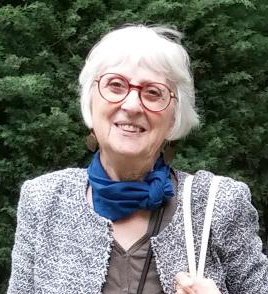
di Paolo Healey
The Angus Cameron Professorship was established as a tribute to the founding Editor of the Dictionary of Old English, Angus Cameron. A former Rhodes scholar at Jesus College, Oxford, Cameron was appointed to the Department of English, University College in 1968, but had only fourteen years to work on his technologically innovative project before his untimely death of cancer in 1983.
As Cameron’s first student to be awarded a PhD, I became the inaugural holder of the Cameron Professorship between 1991 and 2014. I am delighted at the appointment of Renée Trilling who possesses the intellectual energy, originality, scholarly accessibility, collegial generosity, and great good humour which so characterized Angus Cameron’s work and life.
Antonette (Toni) di Paolo Healey (U of T Centre for Medieval Studies / Department of English) is Professor Emerita of Old English Studies and the inaugural holder of the Angus Cameron Professorship in Old English.
Learn more at doe.artsci.utoronto.ca.
In Memoriam: Natalie Zemon Davis
by: Suzanne Conklin Akbari
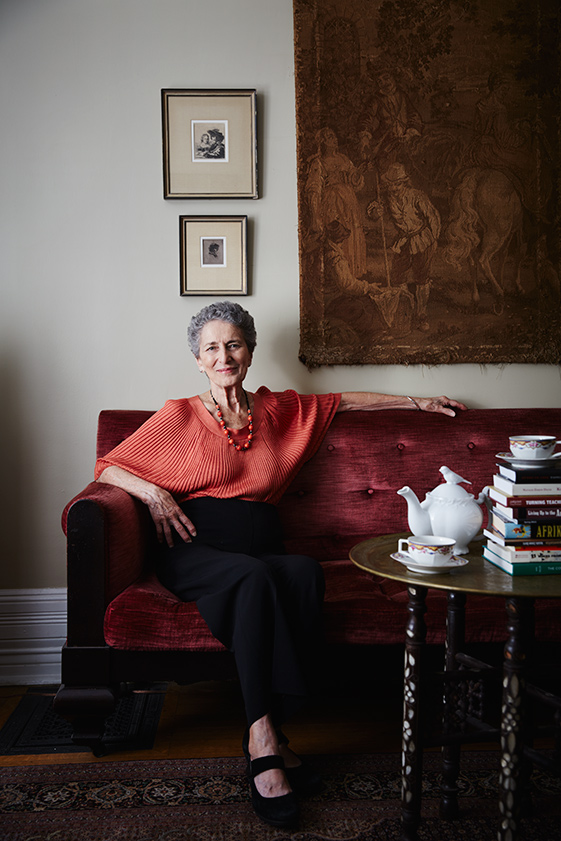
It is difficult to greet the New Year without our dear friend and colleague, Natalie Zemon Davis (November 8, 1928-October 21, 2023). A brilliant historian, she spent the early and late years of her academic career at the University of Toronto with intervening periods at Berkeley and Princeton. While at each of these institutions, Natalie had a profound impact on her communities, as well as on the discipline. An early modernist and cross-appointed member of CMS, she was close friends with many medievalists, and deeply interested in the lines of filiation that link the medieval past through the early modern and into our present day.
I first met Natalie in the early 2000s, when she was at work on Trickster Travels (2006), a study of al-Hasan Muhammad al-Wazzan al-Fasi, the 16th-century geographer whose life course took him from his birthplace in Granada to North Africa to Rome, where under the name Leo Africanus, he became a member of the Medici papal court. Natalie continued her exploration of al-Hasan al-Wazzan in Leo Africanus Discovers Comedy: Theatre and Poetry Across the Mediterranean (2021), a journey that also inspired Wajdi Mouawad’s 2017 play Birds of a Kind. Natalie’s career is bookended by the intersection of historical research and dramatic storytelling, first with The Return of Martin Guerre (the 1982 film on which she served as historical consultant, and her own 1983 book), and later with Trickster Travels and Birds of a Kind. These collaborations illuminate her ability to weave together the methods of social and cultural history, where each microhistory is a small, exquisitely detailed canvas that offers a glimpse into a complex and multilayered world.
Natalie made her presence felt not only as a scholar but as a human being, a brilliant and creative researcher to be sure, but also a conversationalist and a collaborator who seemed to be constantly knitting together ideas, arguments, and (above all) people. In her communities at Berkeley, and later Princeton, this must have taken place largely in classroom spaces, lecture halls, and faculty lounges, since she was maintaining a commuting lifestyle. In Toronto however, her home with her husband, mathematician and Sci-Fi writer Chandler Davis, was the centre for all this activity with gatherings large and small. The former included their annual New Year’s Day party, where the house would be full of people flowing in and out the doors, with Chan pouring wine in the kitchen, and Natalie circulating, making sure that everyone was looked after and engaged in conversation. She would go from person to person, making introductions to those who were new to one another, and offering a comment or a question to those pairs of guests who were already acquainted, adding a detail that would spark renewed energy in the exchange. She was a connector, someone who brought together both ideas and people.
At the other end of the spectrum were the intimate meetings for tea at their home, sometimes with a few people, or sometimes just oneself and Natalie. She would always have something delicious to offer, a piece of carrot cake, or Molly Greenblatt’s cheese ball recipe, warm from the oven (and she would also offer the recipe), along with the sparkling conversation that was the purpose of the visit. While you waited for her to bring the tea (she would refuse to let you help carry), there would be piles of books on the coffee table: offerings from others, Natalie’s own publications, or a new book by a friend or family member. All of them spurs to new conversations, and items to share.
Thinking about her during the days just after her death, I revisited some of the emails we had exchanged over the years. I was struck by how full of anticipation they were: arrangements to meet for tea and conversation, punctuated with tantalizing tidbits about new articles or books being written, an exhibition that one of us had seen, or a plan for future travel. The present and the future were always full of potential, which was nurtured in that wonderful space on Euclid Avenue. Chan was usually there as well, only joining our conversations now and then, but their intertwined lives gave that home its special energy. The last time I saw him in late 2019, he was out on Bloor Street (as he was regularly) with members of Jewish Voice for Peace. Their shared commitment to social justice, expressed in sometimes overlapping and distinct ways, gave the warmth of their household a kind of edge. This was a radical space of kindness and mutual support, where human connection was the driver of hope for a better present and future.
Suzanne Conklin Akbari is Professor of medieval studies at the Institute for Advanced Study in Princeton, New Jersey, co-principal investigator at the Old Books New Science Lab, and former CMS professor and Director.
Lectures & Conferences
CMS Convivium
Winter 2024
January 12
Lori Walters (CMS Visiting Scholar), Christine de Pizan’s Queen’s Manuscript (BL, Harley 4431) as the High Point of Her Career
January 26
Karla Mallette (Michigan University), Hang Time. Thinking About the Future in the Medieval Mediterranean
February 9
Tommaso De Robertis (Marie Sklodowska-Curie Postdoctoral Global Fellow), The Reception of John Philoponus (6th Century CE) in Renaissance Italy (1450-1600)
Noam Sienna (Faculty of Arts & Science Postdoctoral Fellow), The Mishnah MS A: Rethinking the Beginnings of Jewish Book Culture
March 1
Shami Ghosh (CMS Faculty), Puzzling over Parzival, or How to be Good in a Bad, Bad World
March 15
Ariana Sider (CMS PhD Candidate), Fixing Senses in Late-Medieval Tournai: The Example of Méhaut de Waudripont
Bard Swallow (CMS PhD Candidate), Translatio of the Untranslatable: writing an English verse form in Latin
March 22 - hosted by Markus Stock
Hans-Jochen Schiewer (Albert Ludwig University of Freiburg), Preaching as Literature: (Mendicant) ‘Popularization’ of Theology and the Bible around 1300
April 5 - Annual Alumni Lecture hosted by John Magee
Andrew Hicks (Cornell University), On the Composition and Sources of William of Conches’s Glosae super Priscianum
April 12 - O’Donnell Lecture hosted by Greti Dinkova-Bruun
Carmen Cardelle Hartmann (University of Zurich,) Petrus Alfonsi, A 12th-Century Spanish Polymath and Christian Convert: An Intellectual Profile
April 19 - Old English Colloquium and Masterclass by Tarren Andrews (Yale University), Legacies of Surveillance: Data, the Domesday Book, and the Dawes Act
Other Events
Save the Date
January 25 - Shirley Ann Brown (York University): The Normannenteppich: The Bayeux Tapestry, the Nazis, and the Viking Myth, Room 400 Alumni Hall, 121 St. Joseph Street
January 30 - Etienne Gilson Lecture with Fr. Thomas Joseph White, O.P., (Rector Magnificus, Pontifical University of St. Thomas Aquinas, Rome): Theology of the Trinity and the Nature of the University Father Madden Hall, 100 St. Joseph Street
February 2-3 - PIMS Medieval Women Workshop VI: Women and Society
March 8-9 - Annual Toronto Workshop in Ancient Philosophy (ATWAP): Philosophy in Early Christian Texts
Events & Photos
Past Convivia
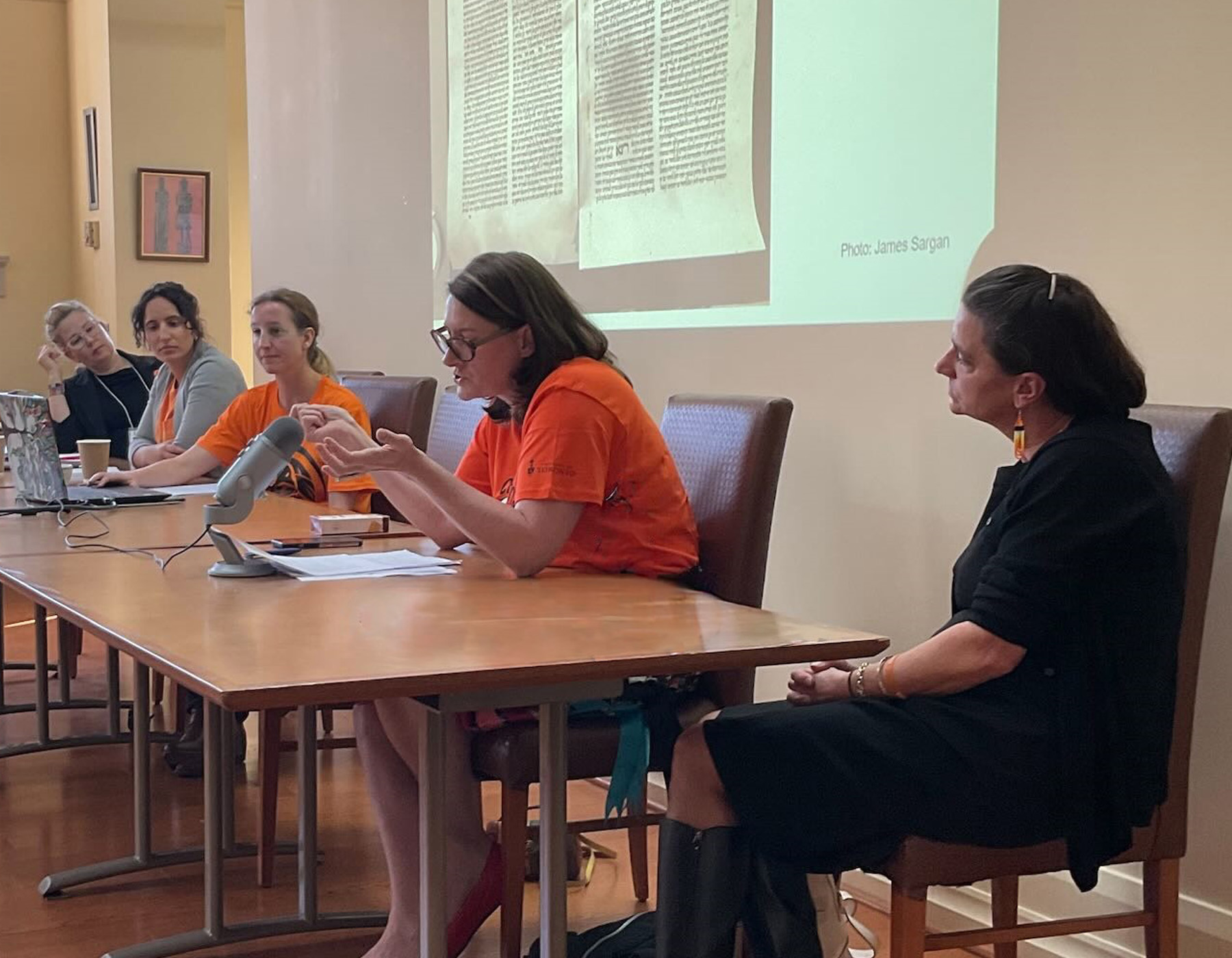
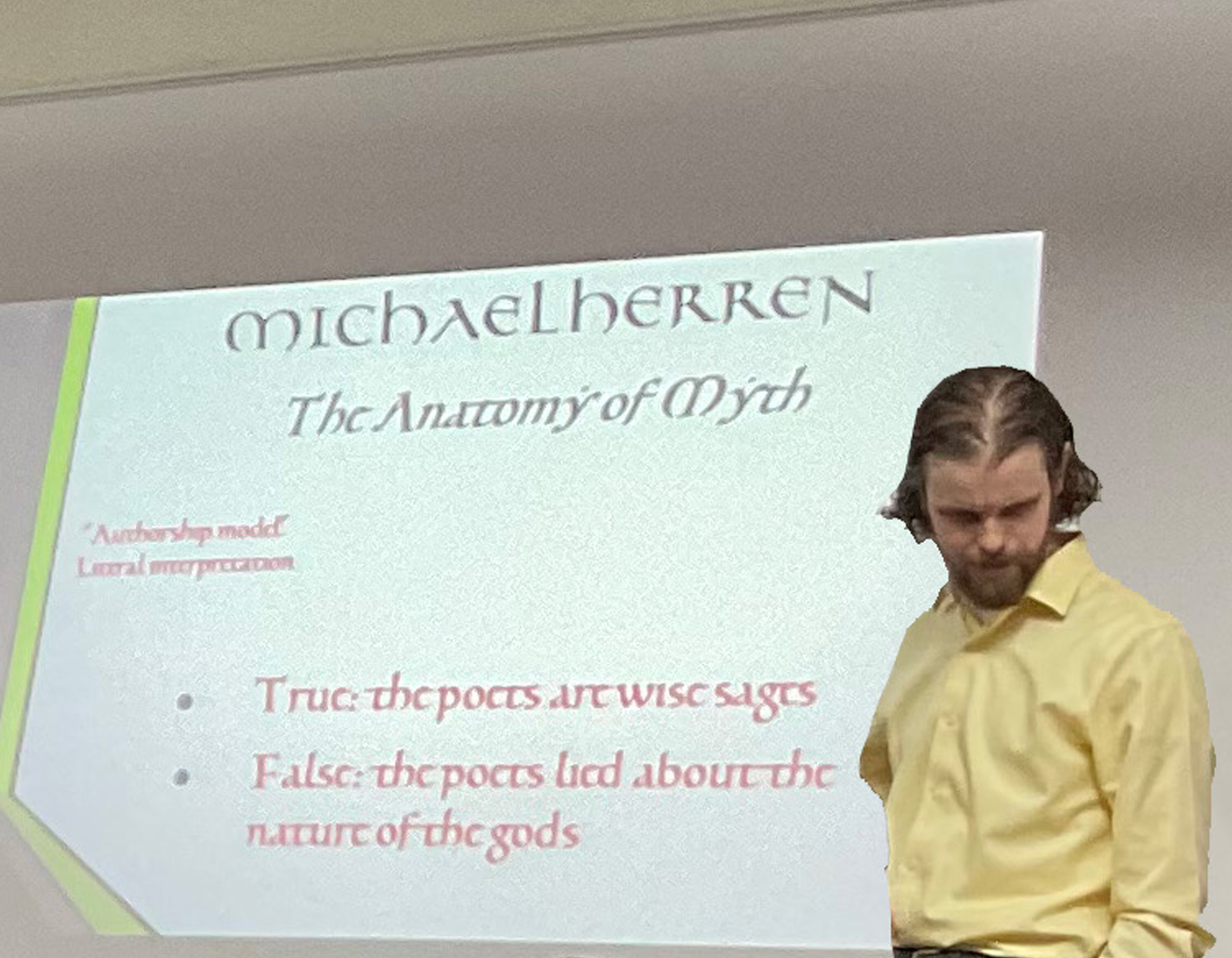
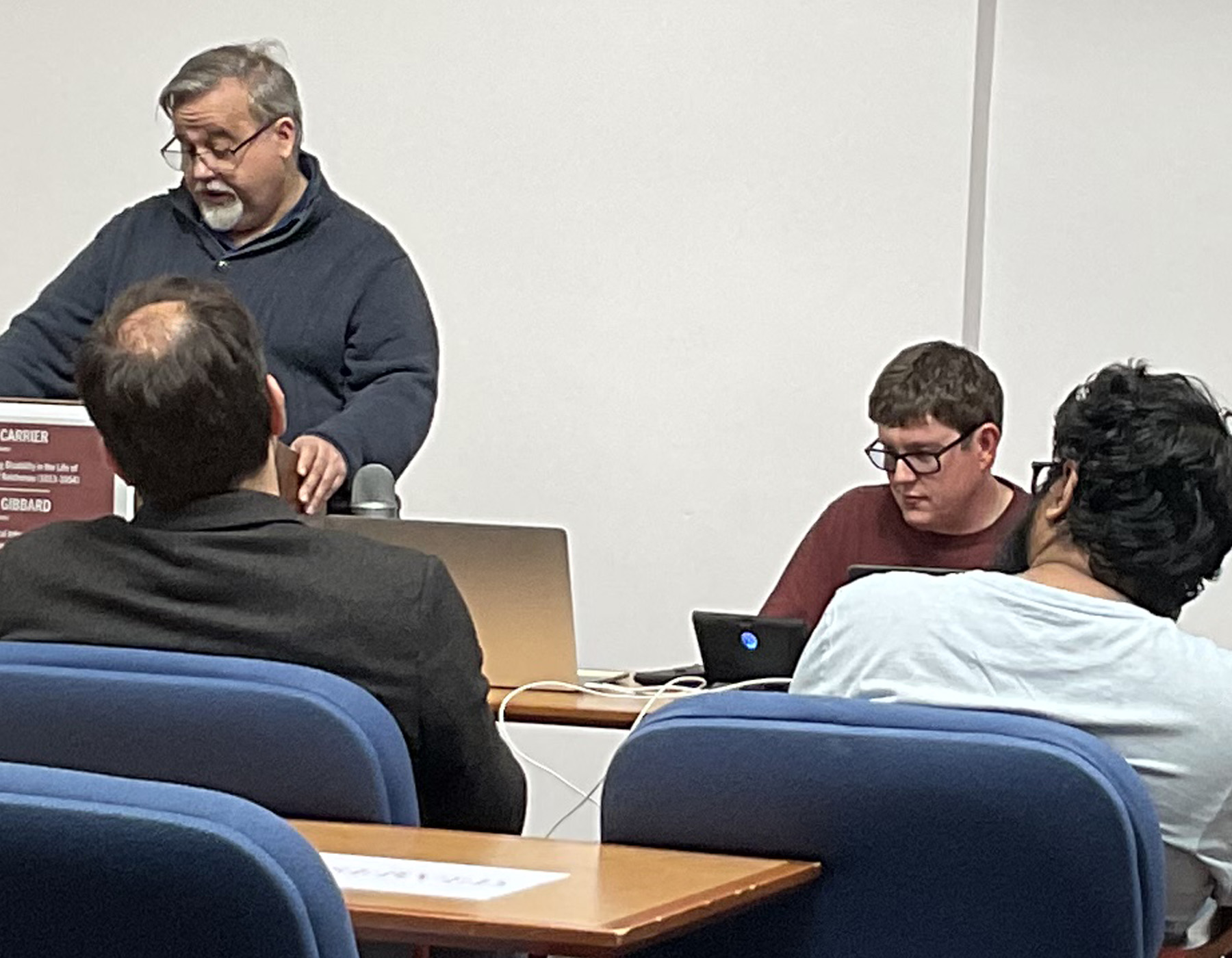
and Greg Carrier (as read by Professor Jim Ginther) on
Chronicling Disability in the Life of Herman of Reichenau (1013-1054).
CMS Open House
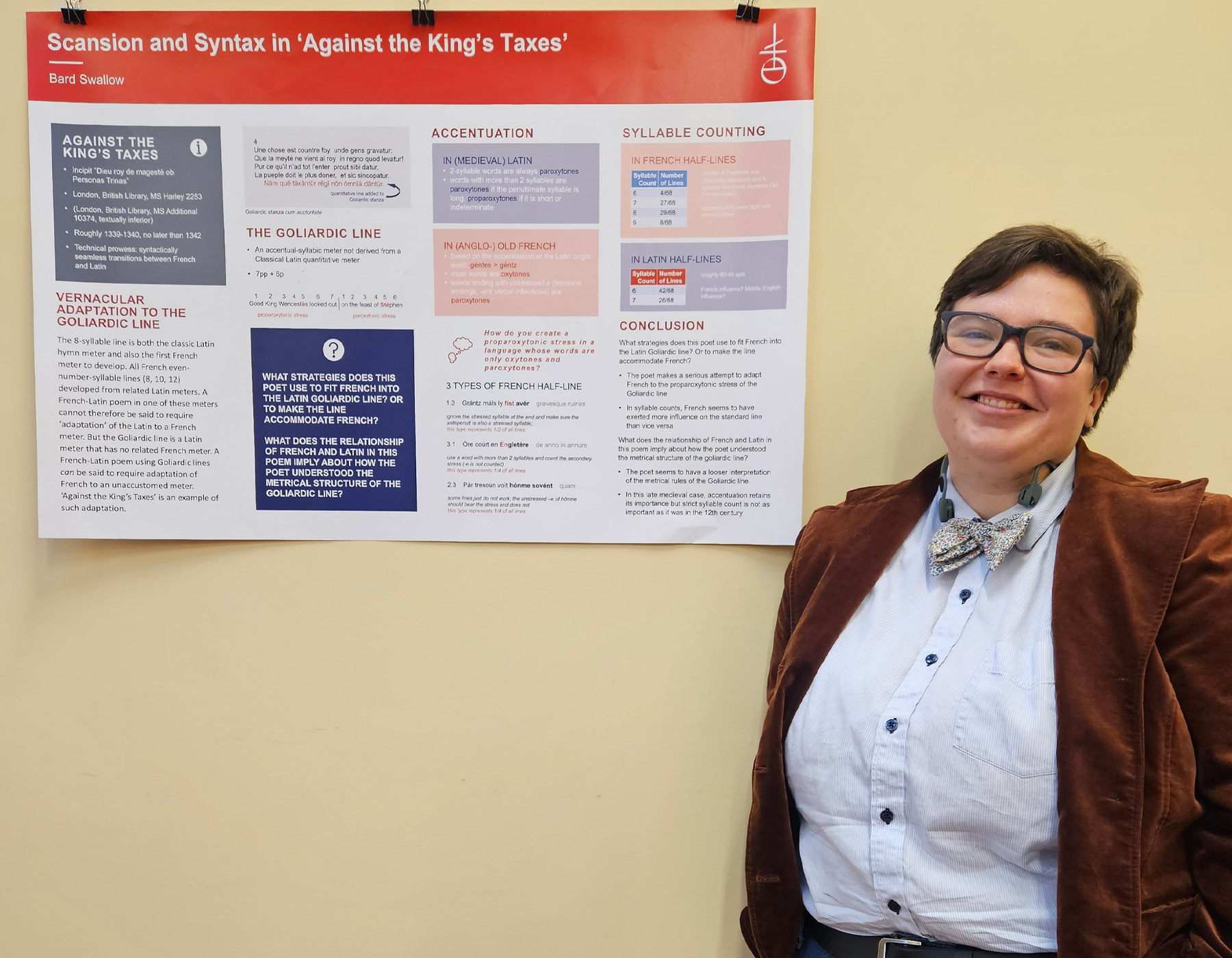
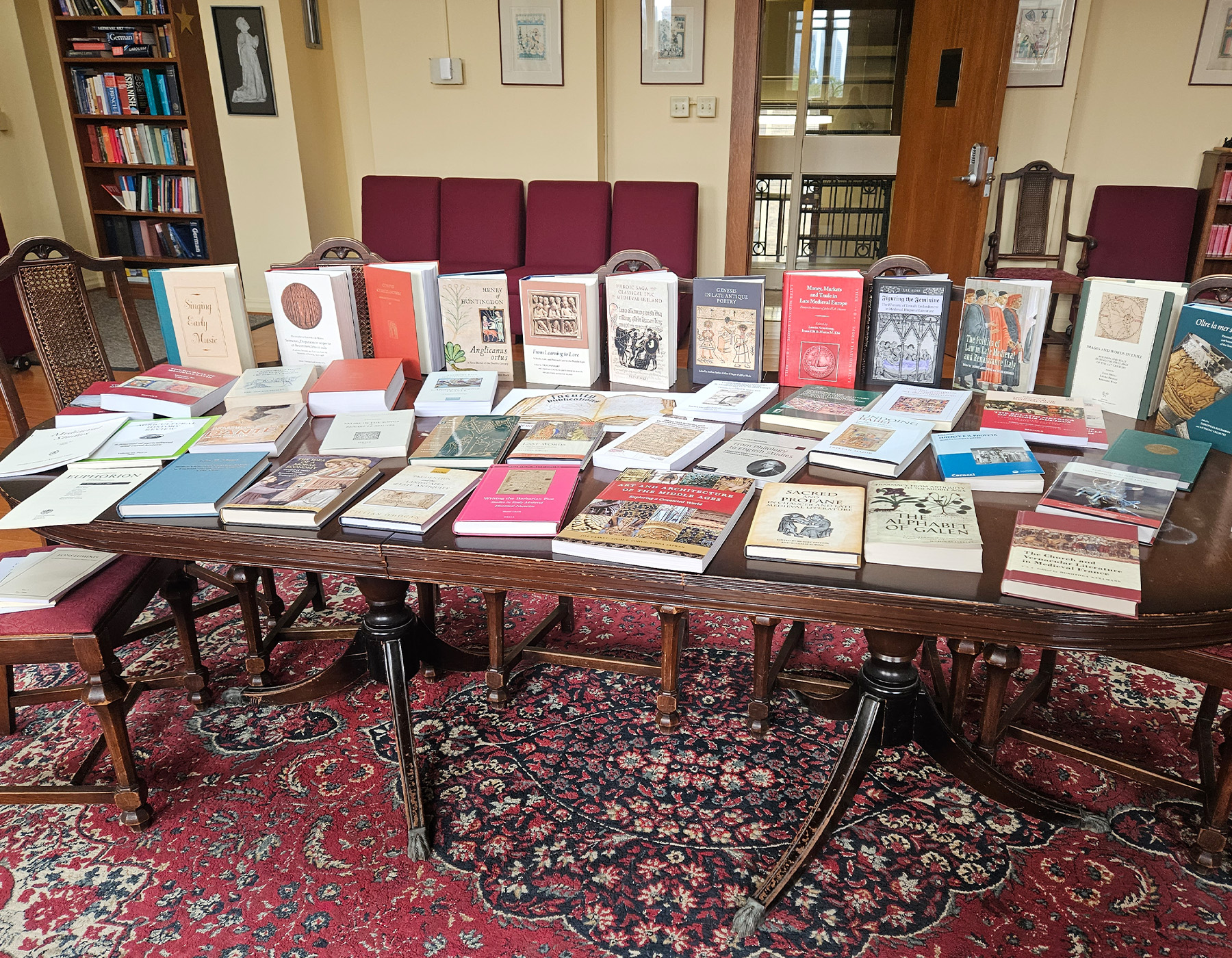
Otia
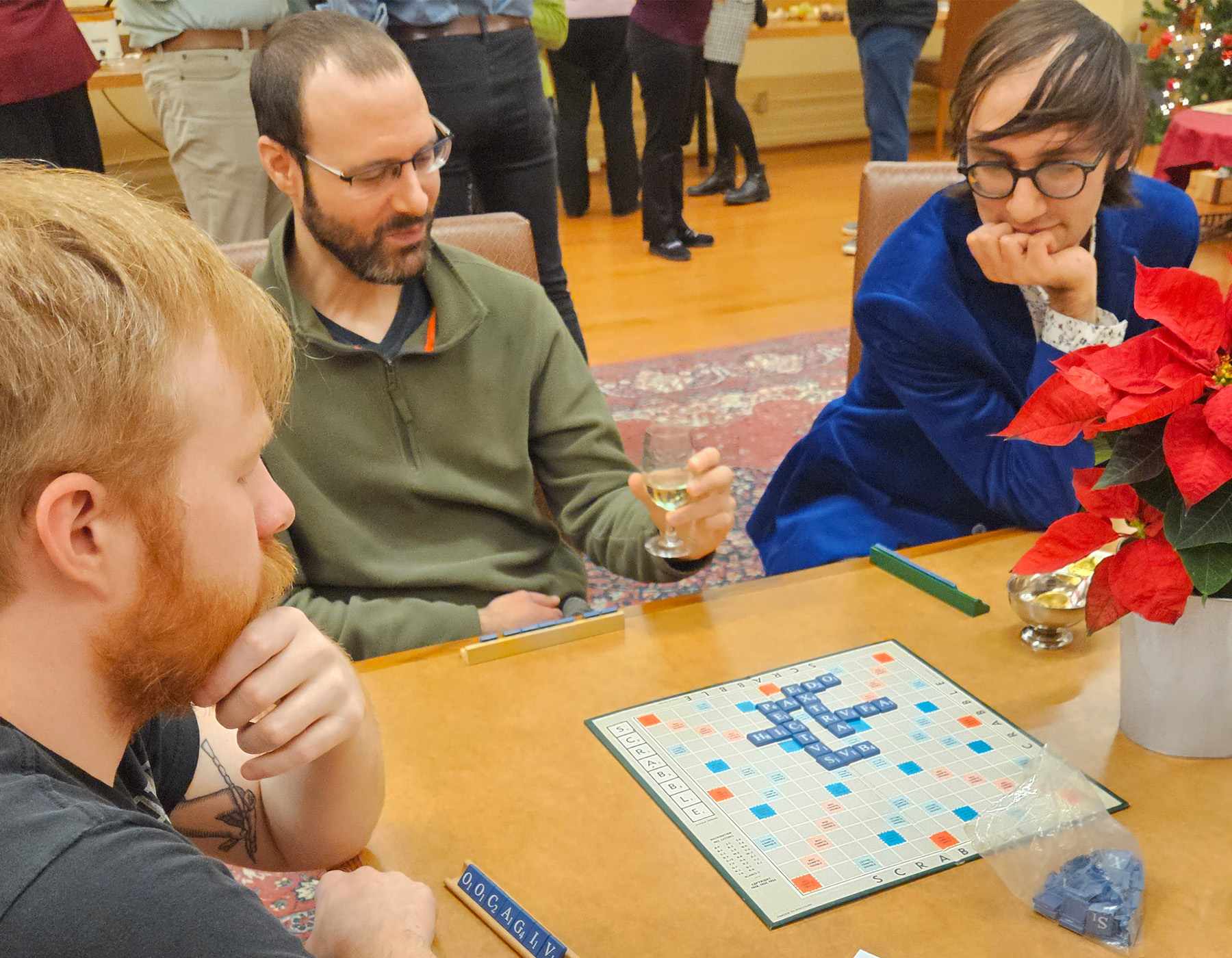
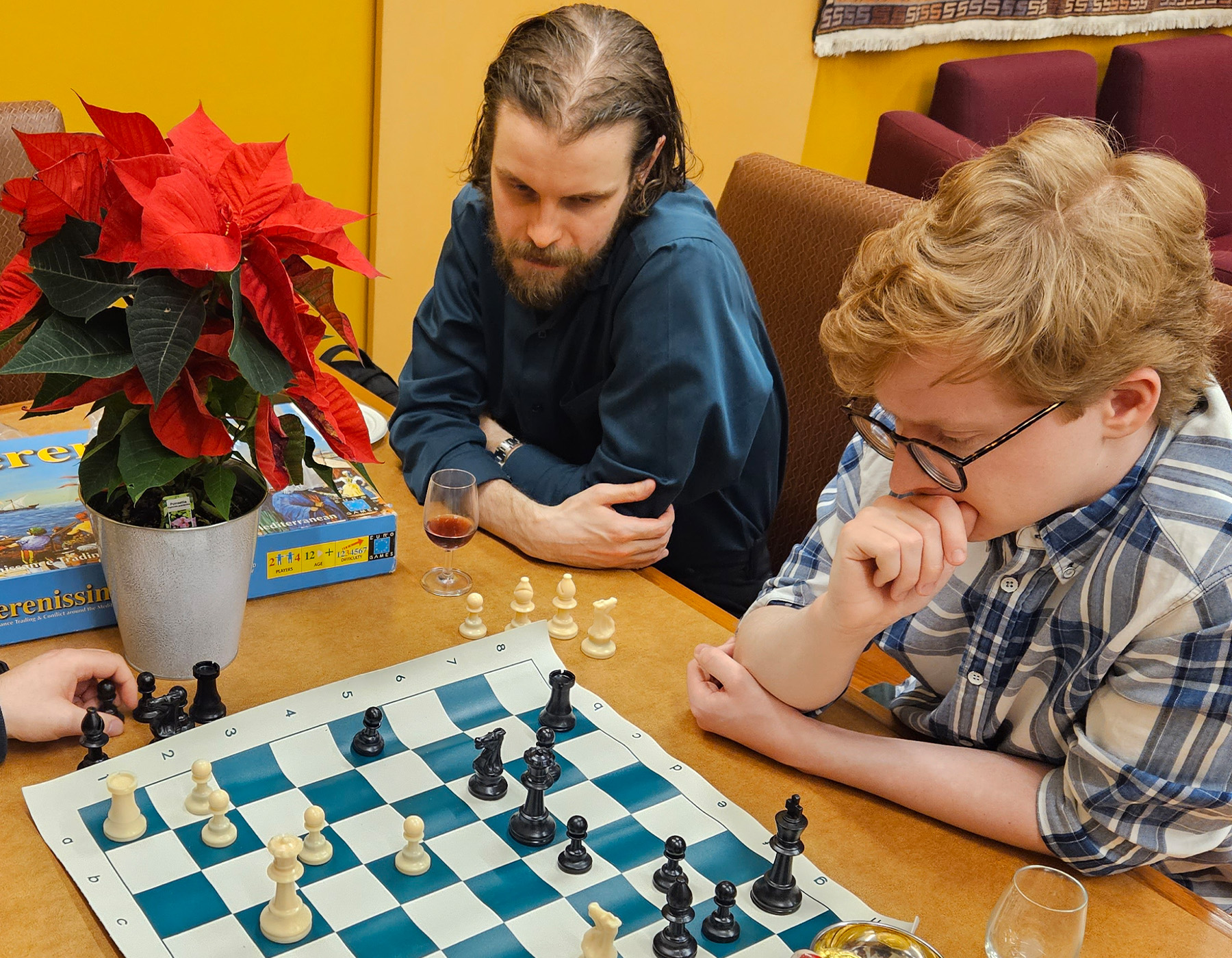
9th Cologne-Toronto Colloquium
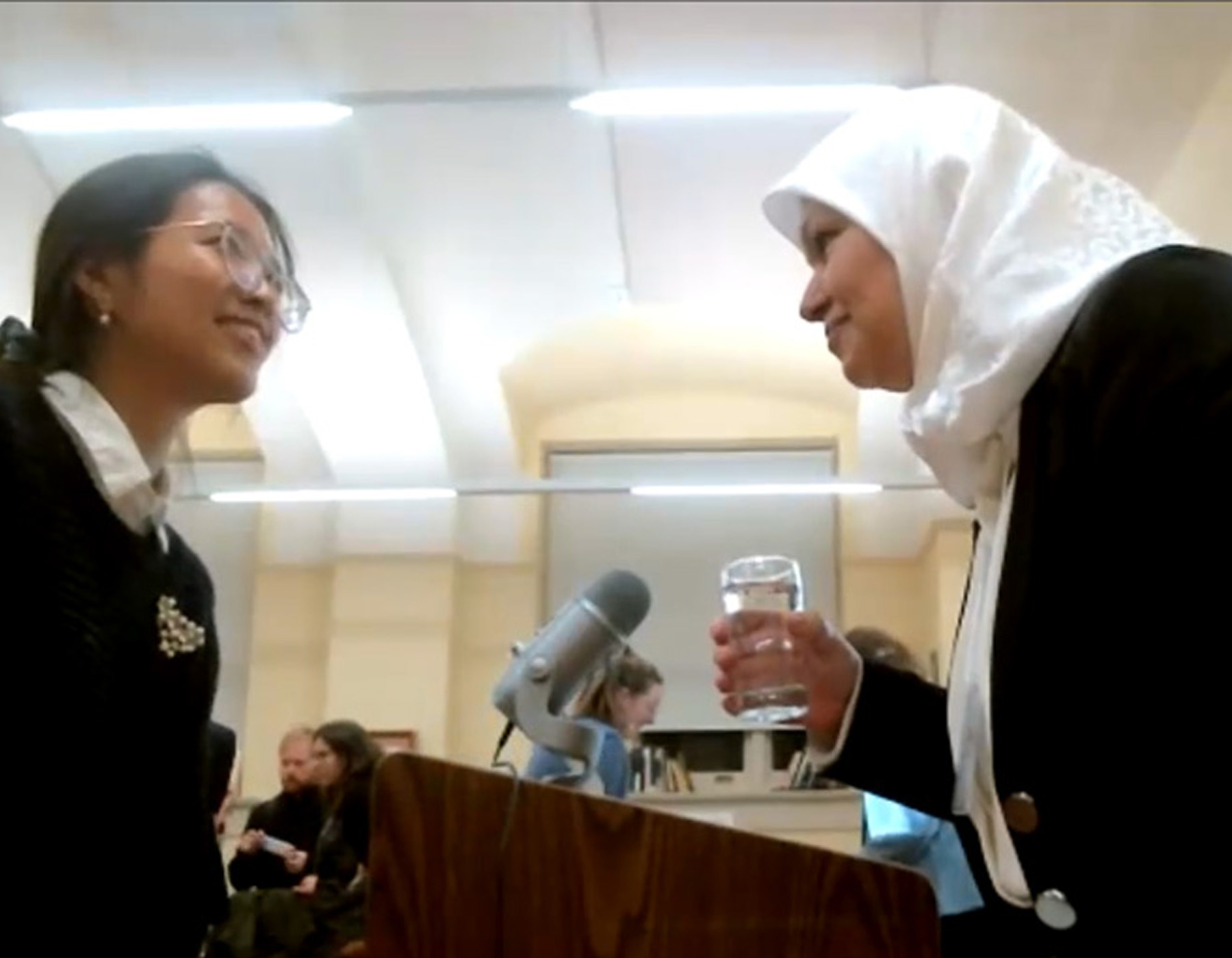
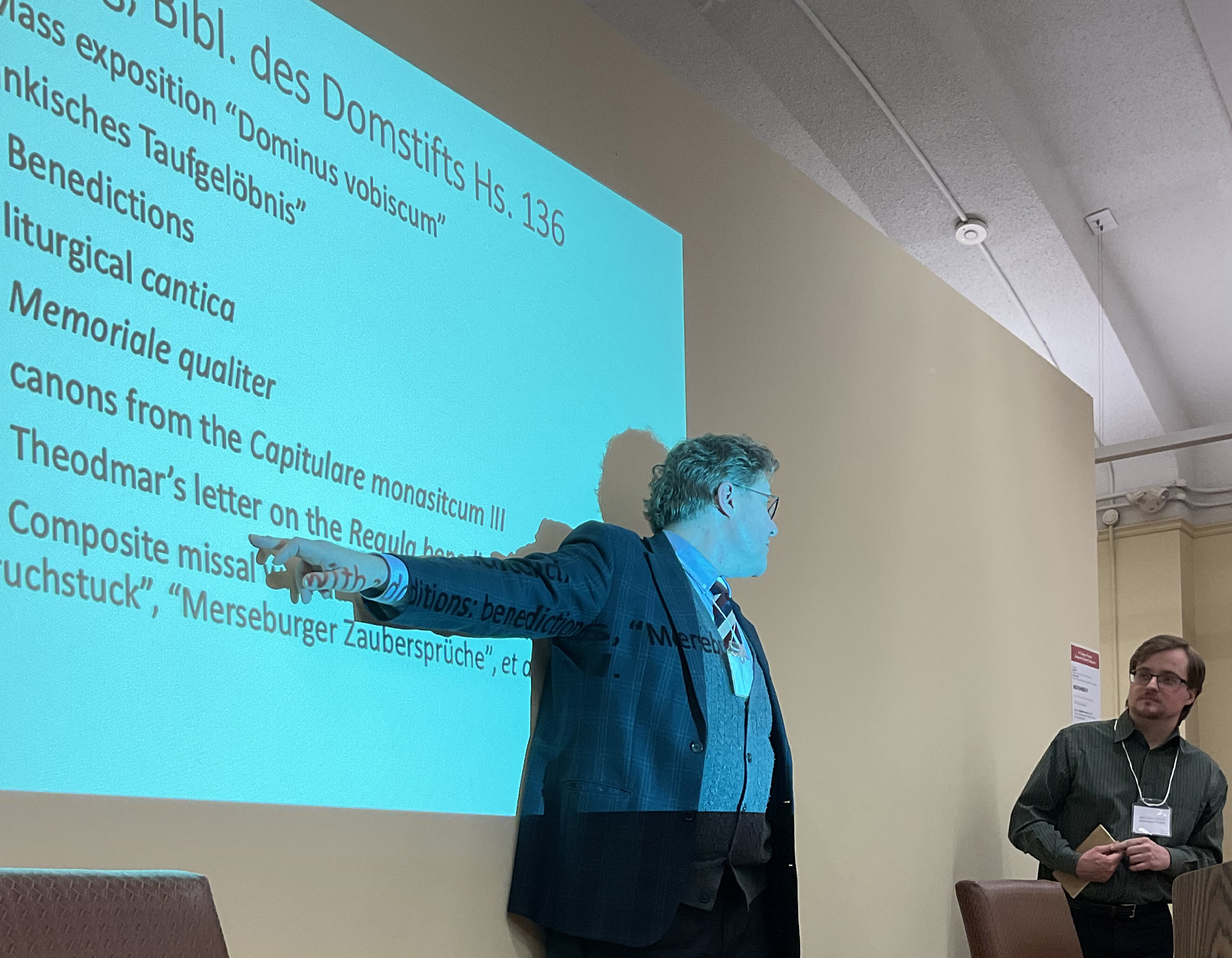
Archbishopric of Mainz.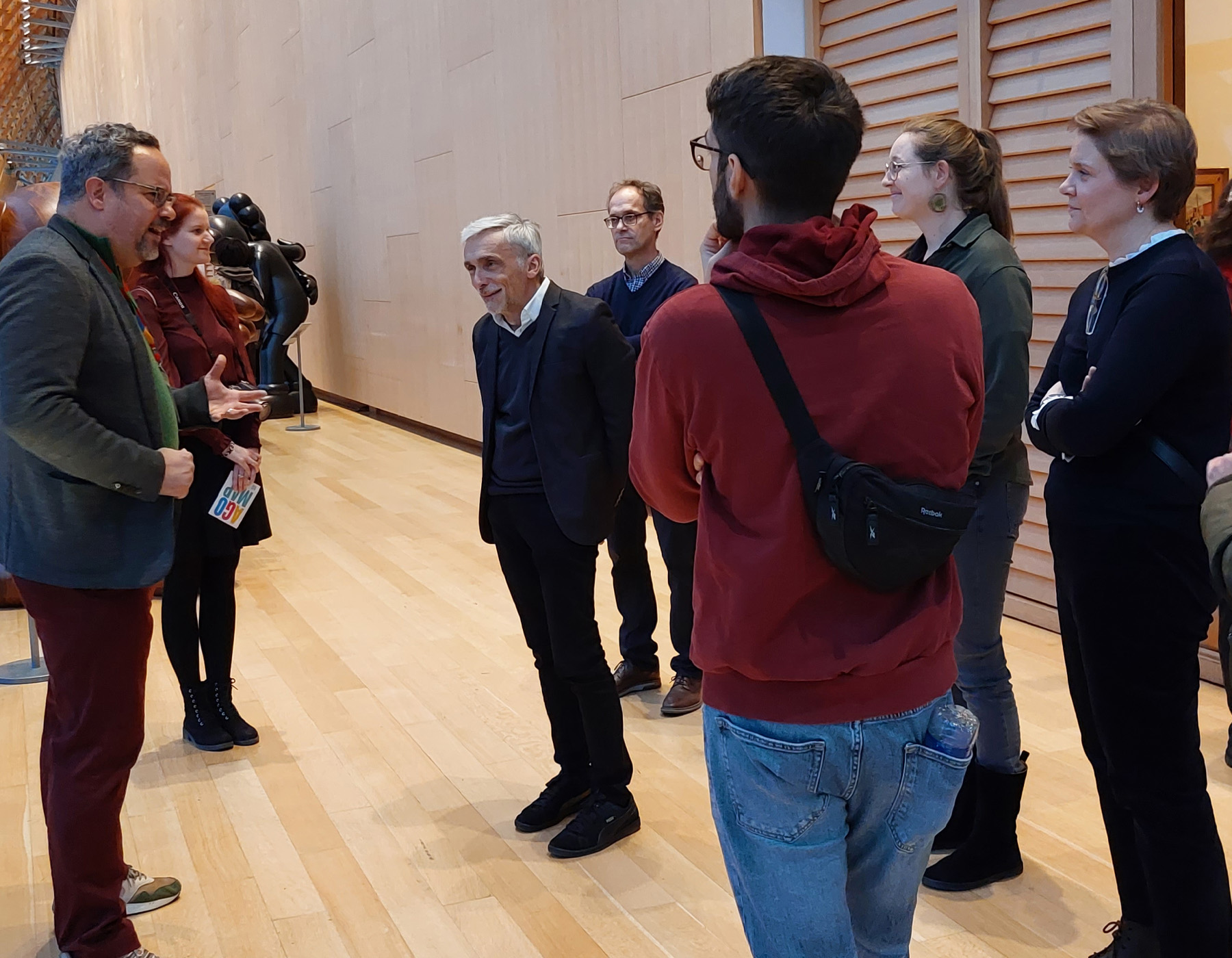
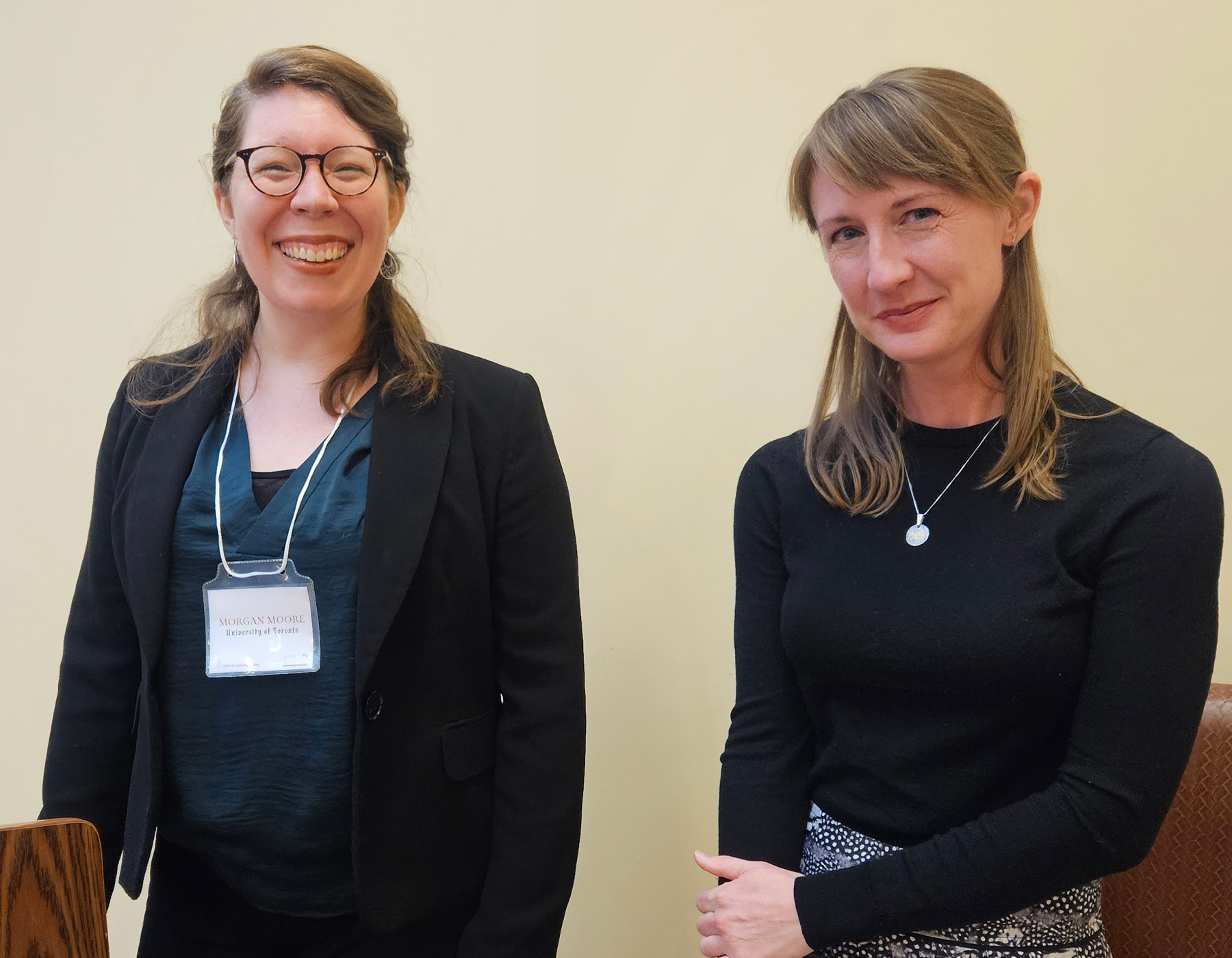
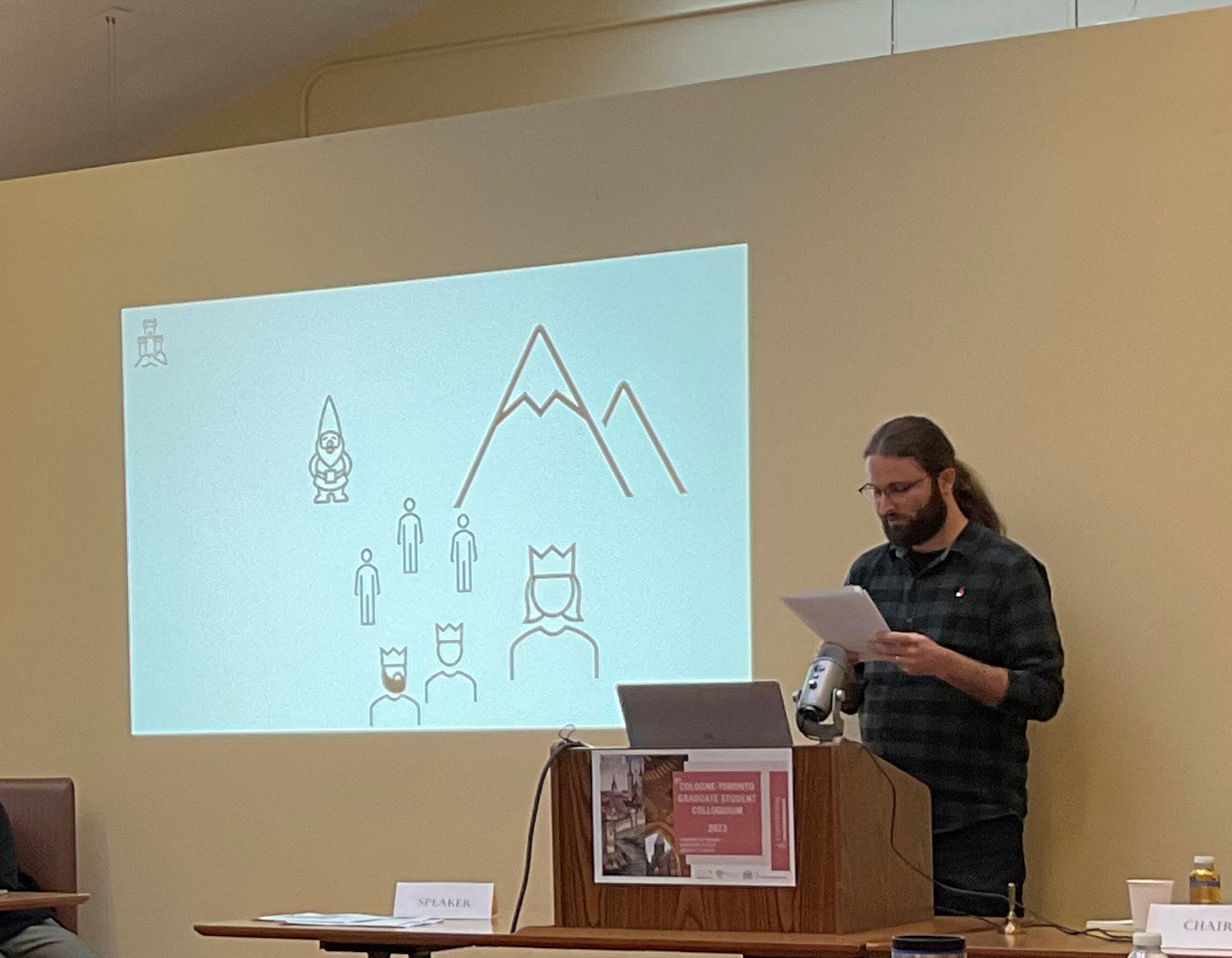
Publications
Congratulations Faculty and Alumni
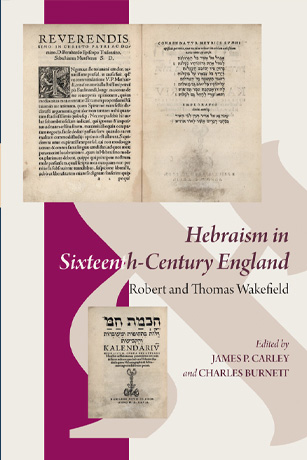
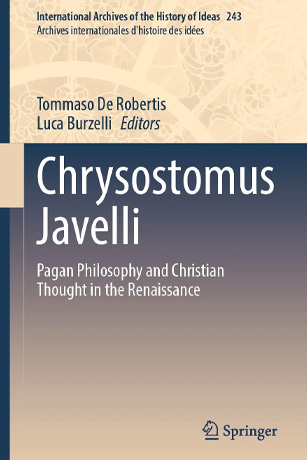
Philosophy and Christian Thought in the Renaissance • Edited by Tommaso De Robertis and Luca Burzelli • Springer Nature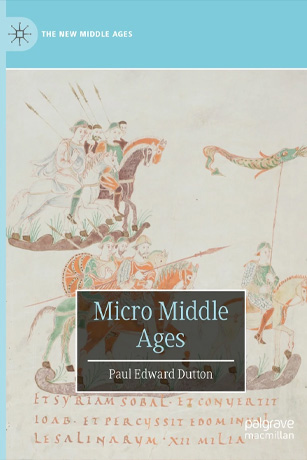
Edward Dutton •
Palgrave Macmillan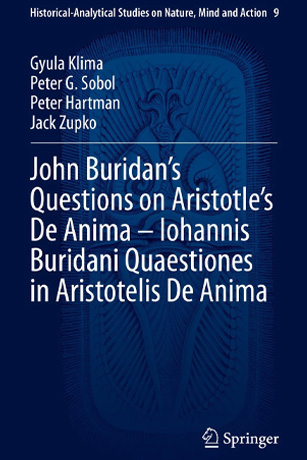
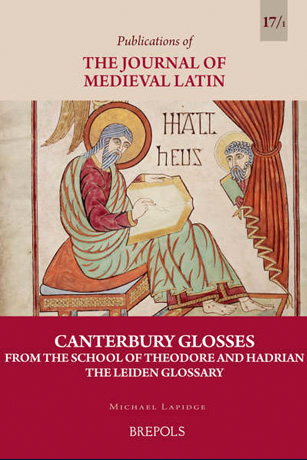
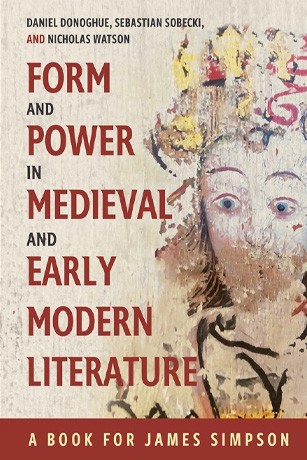
Sobecki and Nicholas Watson • Boydell & Brewer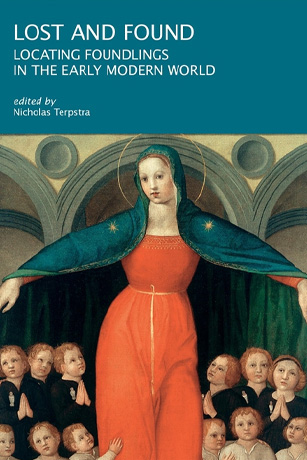
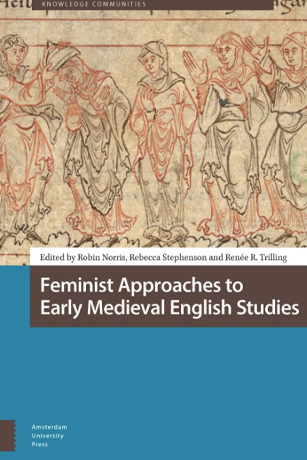
to Early
Medieval English
Studies • Robin
Norris Rebecca
Stephenson and
Renée Trilling •
Amsterdam University
Press
New Fiction Books
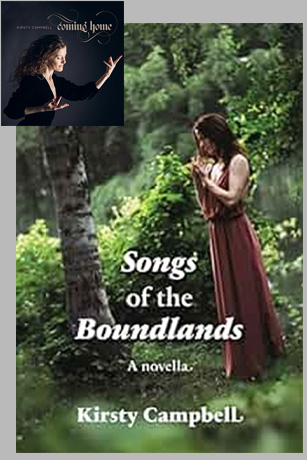
A novella. • Kirsty Campbell • independent and album:
Coming Home • self-produced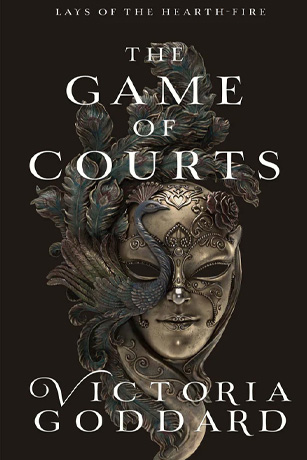
The Game of Courts • Victoria Goddard •
Underhill Books
Acclamations
Faculty News
Sebastian Sobecki worked with the Thomas Fisher Rare Book Library to obtain a partial copy of Sir John Mandeville’s Travels. Professor Sobecki was also recently elected to the fellowship of the Royal Historical Society.
Renée Trilling was appointed Angus Cameron Professor of Old English.
The International Society for the Study of Early Medieval England (ISSEME) has named a plenary lecture in honour of Roberta Frank.
Student News
Deanna Brook’s received the CMS Publication Prize for Thinking about the Future: The Psychology of the Mind and Soul in Judgement Day I (The Review of English Studies, 2023, Vol. 74, No. 313, 1–15).
Emma Gabe received the CMS Publication Prize for Johannes Meyer’s Rule and Constitutions for Dominican Laybrothers and Laysisters (Mediaeval Studies, 84, 2022, p. 151-219).
John Jalsevac successfully defended his dissertation, Aquinas’s Philosophy of Memory.
Katie Menendez was appointed Lecturer in the Department of English at the University of Illinois Urbana-Champaign.
Alumni News
Laurence de Looze (PhD 1987) was named one of the inaugural recipients of the Western Research Excellence Awards.
Miles Pattenden (MA 2005) was awarded the Established Scholar Publication Award for his close study, Papal Rome in Lockdown: Proximities, Temporalities and Emotions during the Im/mobility of the Conclave.
Staff News
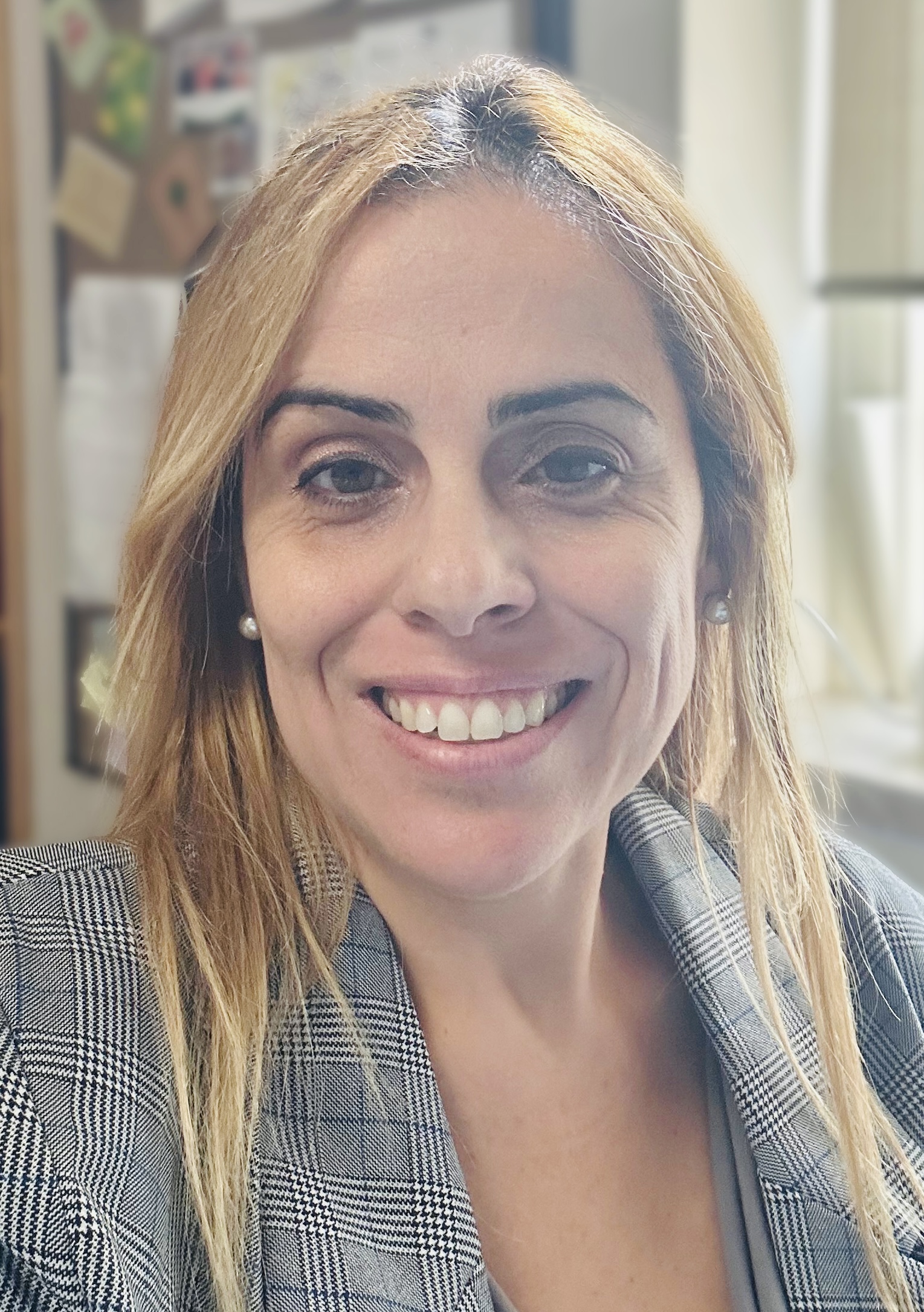
This November, CMS welcomed Elizabete (Liz) Lourenco to the CMS administrative team as Manager. Liz was previously the Business Officer & Graduate Administrator at Italian Studies, and so brings a great knowledge and familiarity to the Centre for Medieval Studies. We are overjoyed to have Liz on our staff!
“As the new Manager, I’m thrilled to join the vibrant community at CMS and look forward to engaging with CMS students, faculty, staff, and alumni. I intend to bring a collaborative and meaningful approach to this multifaceted role of overseeing the day-to-day operations and long-term planning of the Centre.”
CMS said goodbye to three previous administrative members who have embarked on new professional journeys. They will be greatly missed, but we congratulate them on their new adventures!
Former CMS Manager, Fareena Mughal gained a new position as Finance Director at the Faculty of Music.
Previous Graduate Assistant at CMS, Simon Swain joined OISE as Financial Aid and Awards Coordinator.
Interim Executive Assistant, Catherine Daugherty moved to Western University as Director of Development, Faculties & Divisions, Development.


